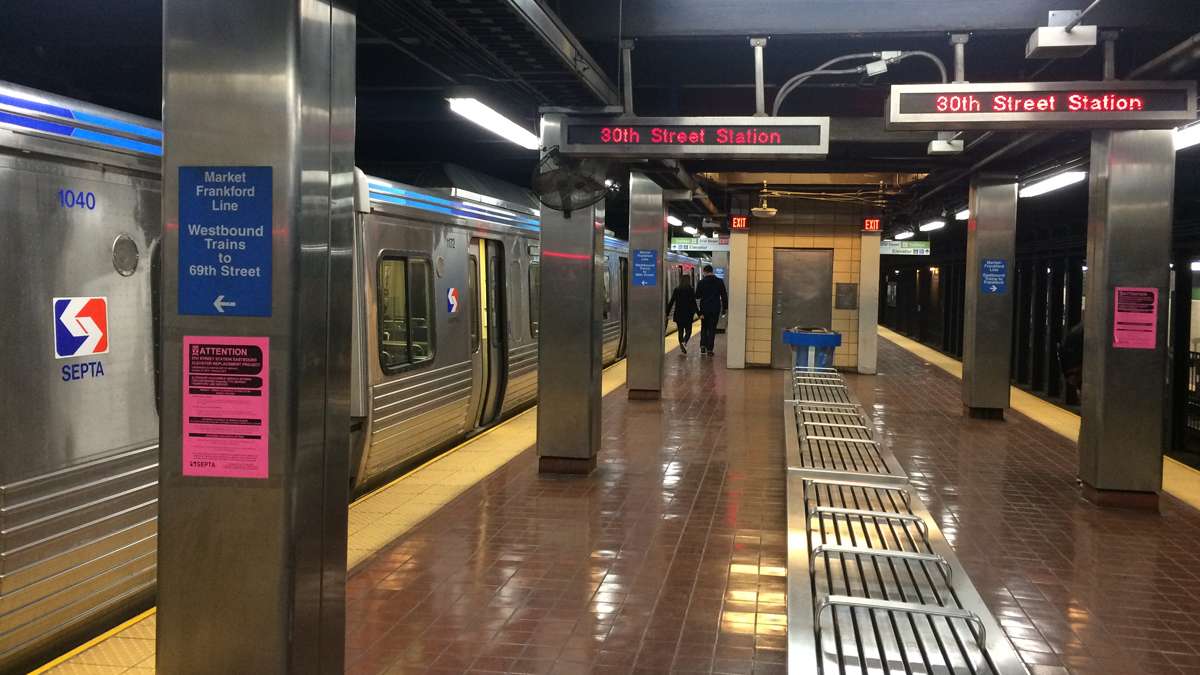And on the seventh day, we rode — Six-day SEPTA strike ends just before election

Around 3:00 p.m. Sunday afternoon, Bruce Bodner, general counsel and a lead negotiator for Transport Workers Union (TWU) Local 234, was eating a cheeseburger at the Downtown Sheraton, where talks with SEPTA were taking place. Bodner was alone, checking e-mails on his phone, ignoring the ugly first half of another ugly Eagles game.
I asked him the same question I asked everybody this past week: Think we’ll get a deal to end the strike today?
“Honestly, no,” said Bodner. “Not with the injunction hearing tomorrow; the election is all our leverage, so why would SEPTA make a serious proposal?”
A few hours later, Governor Tom Wolf would announce his support for that injunction to force the striking employees back to work. An hour after that, just before 6:00 p.m., Mayor Jim Kenney would support an Election Day injunction. It appeared as though everyone involved had given up on reaching a settlement, and resigned to a judicial resolution.
But about an hour later, a phone call between PA (soon-to-be U.S.) Rep. Dwight Evans and SEPTA General Manager Jeff Kneuppel led to the kind of serious proposal Bodner had stopped expecting. Talks resumed in earnest and continued into the night, even after a previously-unannounced power outage for maintenance work forced the parties from the Sheraton. The state mediator, who kept himself out of the media spotlight all week as he shuffled between the hotel’s first and fifth floors to deliver proposals and counter offers to TWU and SEPTA negotiators, now drove the two miles between SEPTA headquarters and Local 234’s union hall.
Around 3:30 a.m., Philadelphia Inquirer reporter Jason Laughlin broke the news on Twitter to insomniacs and night-shift workers: A tentative deal had been reached. SEPTA and Local 234 held a predawn press conference at the union hall, where leaders from both sides looked worse for the all-night wear, but happy nonetheless. SEPTA Chairman Pasquale “Pat” Deon, Sr. took the lead, thanking everyone involved in the settlement and apologizing again to the riders. Evans received particular praise for his involvement, perhaps marking a passing of the torch in settling strikes in this town from Congressman Bob Brady.
Besides the length of the tentative agreement—five years—no details were announced. Deon said SEPTA wouldn’t release the details until TWU’s membership had a chance to vote on and ratify the agreement. TWU’s executive leadership is expected to vote later this week, and the general membership will vote the week after. SEPTA’s board will also vote on the agreement.
In the last four strike negotiations—an averted strike in 2004, a seven-day strike in 2005, a six-day strike in 2009, and another last-minute settlement in 2014—figures on wage increases, pension changes and health care costs were immediately available and reported publicly.
When asked if there was a reason to keep the details quiet, TWU spokesman Jamie Horwitz said: “Generally, we don’t like to put that out publicly, before the membership votes.”
A spokesperson for SEPTA responded to PlanPhilly’s inquiry via e-mail, writing: “SEPTA’s policy has always been to not release terms of contracts until they are ratified by union members.” She then blamed Ed Rendell for releasing the information in 2009. Rendell helped lead strike negotiations that year and was never known for reticence.
In 2006, TWU Local 100 members in New York City voted down an agreement brokered by its leaders to end a two-day strike launched just before Christmas. The vote was incredibly tight—just a seven-vote margin—and the union eventually ratified the deal three months later, and remained on the job in between.
As city transit started to return to normal on Monday, worries about the strike’s effect on Tuesday’s Presidential election washed away. At the early morning press conference, Brady was asked what Democratic campaigns expressed their concerns to him, city party chairman. “Everybody,” responded the bleary-eyed Congressman from South Philly.
The strike won’t help SEPTA’s ridership numbers, which were already suffering from this summer’s widespread Regional Rail service disruption. Ridership on Regional Rail has dropped 15 percent compared to last year.
After SEPTA’s last city transit division strike in 2009, ridership immediately dropped 4 percent. Ridership that fiscal year dipped to 200 million trips for city transit ridership alone, down from a peak of 206 million the year prior. Ridership rebounded to 211 million the following year. Passenger revenues made a similar dip and recovery, going from $404.8 million in Fiscal Year 2009 to 396 million in FY 2010 (when the strike occurred) then bouncing back up to $439.4 million in 2011.
Once a new labor agreement in place, SEPTA fares are expected to rise next year. SEPTA delayed a fare increase scheduled for this fiscal year to accommodate SEPTA Key’s introduction to riders, and said that they would increase fares next year. Now, the question is by how much. SEPTA last increased fares in 2014, when it raised cash fares from $2.00 to $2.25, token fares from $1.55 to $1.80, weekly transpasses from $22 to $24, and monthly transpasses from $83 to $91.
WHYY is your source for fact-based, in-depth journalism and information. As a nonprofit organization, we rely on financial support from readers like you. Please give today.



